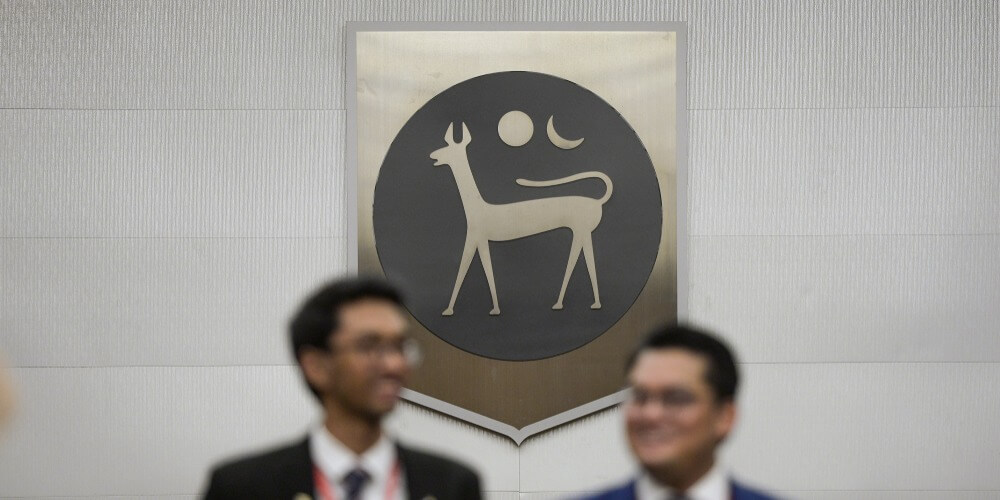Malaysia’s central bank releases value-based intermediation takaful guidelines after 4-year wait
KUALA LUMPUR - Malaysia’s central bank has outlined five environment-led policy moves it is making in response to the threat of climate change, leading with a framework for value-based Intermediation (VBI) for takaful.
Speaking at a conference in Kuala Lumpur on climate change, Bank Negara Malaysia (BNM) governor Nor Shamsiah Mohd Yunus said on Wednesday (June 23) that the initiatives would usher in a “decisive decade for climate action” and complement government efforts to strengthen national climate policies, institutions and frameworks.
Conceding that the bank’s moves would still be “insufficient to mitigate the worst effects of climate change”, she called on financial institutions to respond strongly as their actions “matter more than most, given their role in the economy”.
In addition to the VBI framework for takaful, Nor Shamsiah announced that the bank is strengthening practices in the treatment and climate-risk disclosures by financial intermediaries, ramping up capacity-building to support climate action and risk management, enabling green financing and investment and addressing data gaps in climate and environmental risk-related information.
Malaysia’s takaful industry, which is one of the world’s biggest, was waiting for BNM to release a formal VBI strategy since 2017.
VBI focuses on the adoption of practices within the financial sector that have a sustainable impact to the economy, community and environment.
The takaful framework serves as a comprehensive set of guidelines for implementing VBI practices and values in the Islamic insurance industry and applies to family takaful, general takaful, and retakaful operators.
The framework document encourages firms to realise the objectives of Shariah underpinned by financial resilience, community empowerment, good self-governance and best conduct.
It also highlights how value-driven business strategies and practices can be embodied in respective companies’ corporate value intent, vision and mission.
FOUR FOCUS AREAS
While there are various approaches in implementing value-based practices and initiatives, four focus areas are prioritised in the framework, namely inclusive stakeholder engagement, value-driven solutions, impact-based assessments and constructive collaborations.
“Sustainability is a widely discussed topic within society today, and there is no better time for the takaful industry to consider value-added initiatives within their business conduct and practices as part of the evolving industry,” said Elmie Aman Najas, chairman of Malaysian Takaful Association, in a statement.
BNM’s framework is important to help the takaful industry integrate value-based principles seamlessly into business practices, especially to protect underserved and unserved segments of society and to address socioeconomic issues.
“Over time, the adoption of the VBI agenda will have a significant impact on takaful companies’ models, and this will drive the industry towards sustainable finance ecosystem for the community, environment and economy.
“Takaful and retakaful operators can, and indeed should, play an important role in strengthening resilience against climate change and social issues,” Elmie added.
INDUSTRY PRACTICE
While it is nice for the industry to have a new framework to refer to, Malaysian takaful firms appear to have already taken strides to make their own way to a more sustainable and socially aware segment over the four years since the central bank released its 2017 VBI strategy paper.
The term “value-based” has been increasingly entering the lexicon of Islamic insurers, especially with the onset of the pandemic.
In October 2019, for instance, FWD, a Malaysian takaful operator formerly known as HSBC Amanah Takaful, began work on a new product that would cater for the 40% of Malaysians in the low-wage category, most of whom are Muslim Malays.
More have followed by tailoring their policies to take into account social and environmental matters.
Most recently, Etiqa Family Takaful last month acknowledged the need for mental illness coverage by adding it to one of its health insurance plans.
The new coverage, introduced after Etiqa had noted that almost a third of Malaysians suffer from mental health problems, was in line with the principles of VBI to support people, planet and prosperity, said the insurer’s chief executive.
VOLUNTARY
Despite their apparent appetite to bring more values into their businesses, takaful operators do not have to stick to the new guidelines if they choose not to, but the Malaysian Takaful Association hopes they will over time.
“It is foreseen that the implementation of the VBI initiatives will take place in stages,” it said in a commentary on the framework.
“As the industry progresses through the adoption of the VBI principles, it is hopeful that the discussion of VBI ideals can encourage the stakeholders to embrace a value-driven agenda and change their mindset to consider more meaningful propositions in delivering the intended outcome.”
FWD chief executive Salim Majid Zain is supportive of the move: “The launch of the VBI framework reinforces our vision of changing the way people feel about takaful in Malaysia, as we continue to support and implement the adoption framework,” he said.
“We can’t speak on behalf of other takaful providers, but we certainly embrace and support the adoption framework and think it is positive for the development of the industry as a whole,” he added.
© SalaamGateway.com 2021 All Rights Reserved
